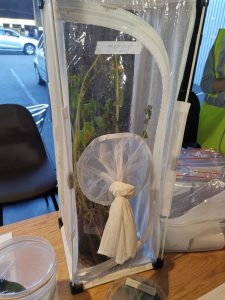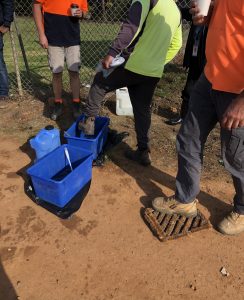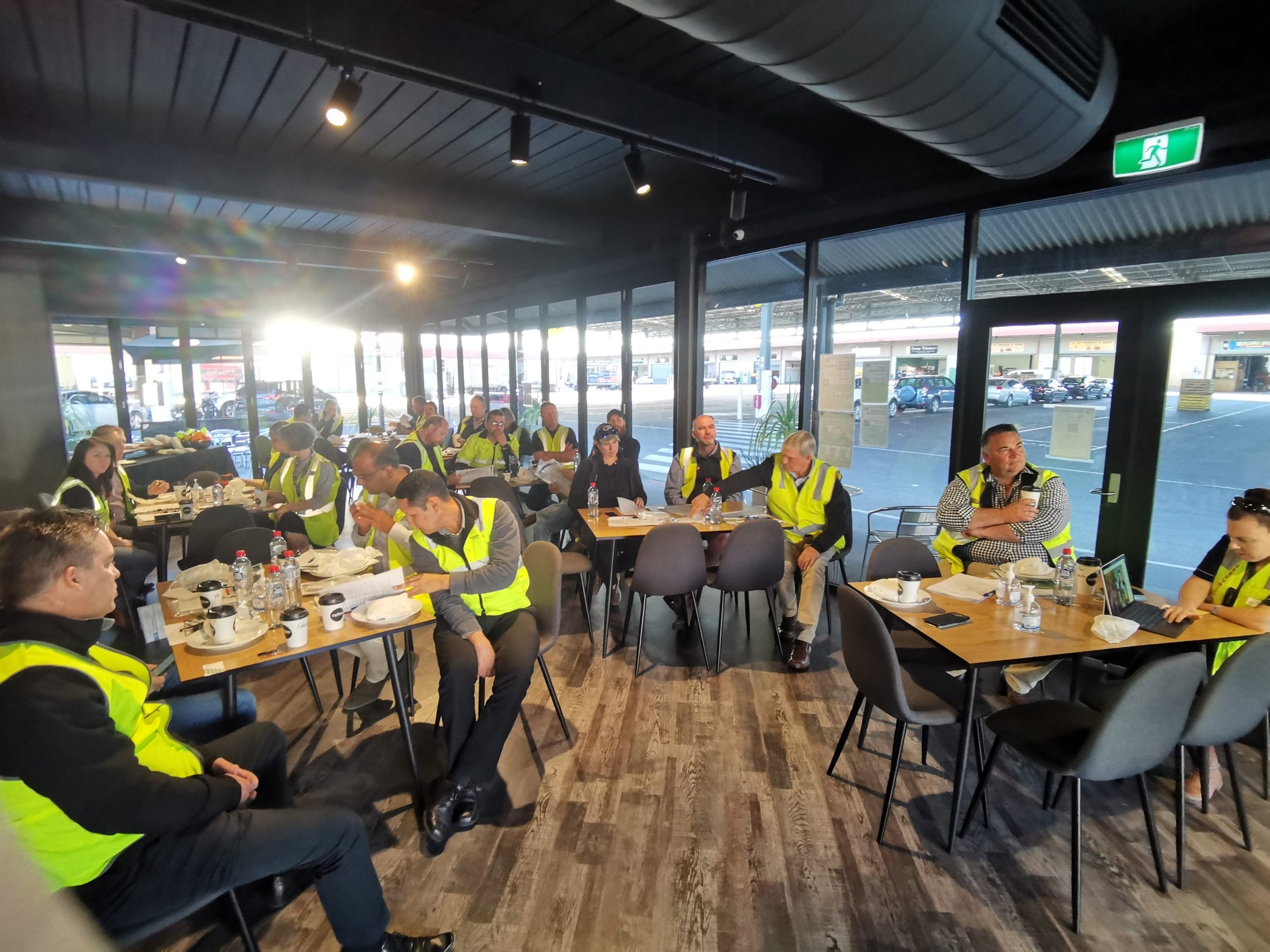Peri-urban biosecurity focus for vegetable growers
In spring 2021, the AUSVEG-facilitated Peri-Urban Biosecurity Program held three workshops to update vegetable growers on current pest and disease threats, as well as provide biosecurity advice and discuss the latest R&D activities in this space. Maddy Quirk reports.
The AUSVEG-facilitated Peri-Urban Biosecurity Pilot Program – funded by the Department of Agriculture, Water and the Environment – is an 18-month vegetable industry-focused program that commenced in January 2021.
Project Coordinator Maddy Quirk is working with vegetable growers, consultants, and agronomists to form pilot surveillance networks across three pilot locations: Virginia, South Australia; Werribee, Victoria; and Greater Sydney, New South Wales.
Three recent workshops – one face-to-face and two virtual – have recently been held, targeting priority plant pests and diseases specific to each region.
Market breakfast

In September, AUSVEG and Primary Industries and Regions South Australia – South Australian Research and Development Institute (PIRSA-SARDI) ran a vegetable industry pest and disease management breakfast at the South Australian Produce Market.
Topics included farm biosecurity and the ‘Clean Your Farm’ program, as well as current biosecurity threats of fruit and vegetables, specifically addressing tomato potato psyllid and fall armyworm.
Disease diagnostics and sampling procedures in horticulture were also discussed with a focus on how industry can access SARDI’s pest and disease diagnostic services. An update on the iMapPESTS cutting-edge mobile plant pest surveillance units was also provided.
Sydney Basin webinar
Due to COVID-19 restrictions, the Sydney and Werribee workshops were moved online. A Sydney-based virtual masterclass saw Shannon Mulholland from the New South Wales Department of Primary Industries, Crop Doc Consulting’s Dr Len Tesoreiro and Maddy Quirk discussing topical pest and disease issues across the Sydney Basin with 37 growers, agronomists, and service providers in attendance.
After consulting industry about what they wanted to learn more about, the key topics included tospoviruses (impatiens necrotic spot virus and tomato spotted wilt virus in hydroponic lettuce and tomatoes), serpentine leafminer in hydroponic lettuce and other crops, and cucurbit diseases.
Werribee event

At the time of writing, the Werribee webinar was yet to take place but was on track to be equally successful. AUSVEG – in partnership with Agriculture Victoria and NielsenIQ – was set to discuss priority pest and disease issues being faced across Werribee, including the state of silverleaf whitefly, vegetable viruses (tomato yellow leaf curl virus, alfalfa mosaic virus, cucumber mosaic virus, and tomato spotted wilt virus), and fungal and bacterial pathogens.
Growers and consultants across Werribee, the Sydney Basin and Virginia are encouraged to contact Maddy to express their interest in the project and stay up-to-date on peri-urban biosecurity across the pilot regions.
For those who missed the workshops, webinar recordings are available on AUSVEG’s YouTube channel. Be sure to keep an eye out for the next round of workshops across the three pilot regions, which are set to take place in late 2021 and early 2022.
Find out more
Please contact AUSVEG Project Officer Maddy Quirk on 03 9882 0277 or email madeleine.quirk@ausveg.com.au.
The Peri-Urban Biosecurity Pilot Program is funded through the Department of Agriculture, Water and the Environment – Plant Biosecurity and Response Reform.
Cover image: Attendees at the SA Produce Market Workshop held in Adelaide in September. Image courtesy of Yanyu Liang, AUSVEG SA.

